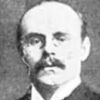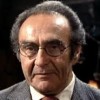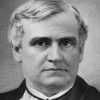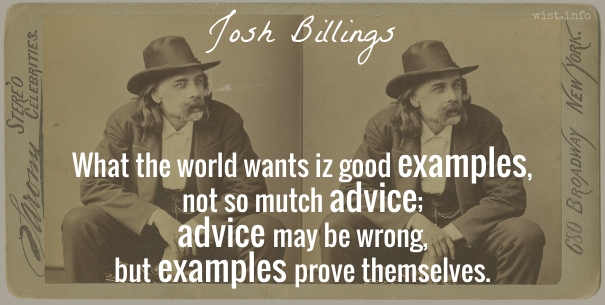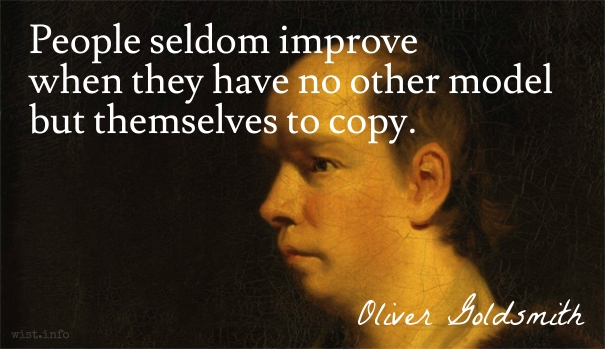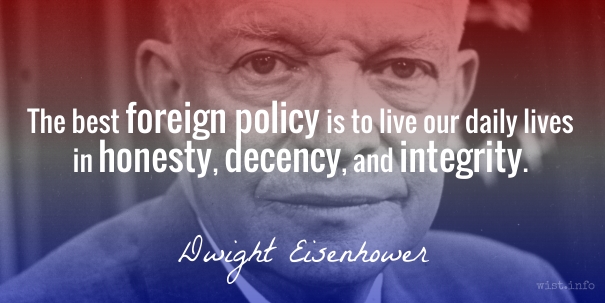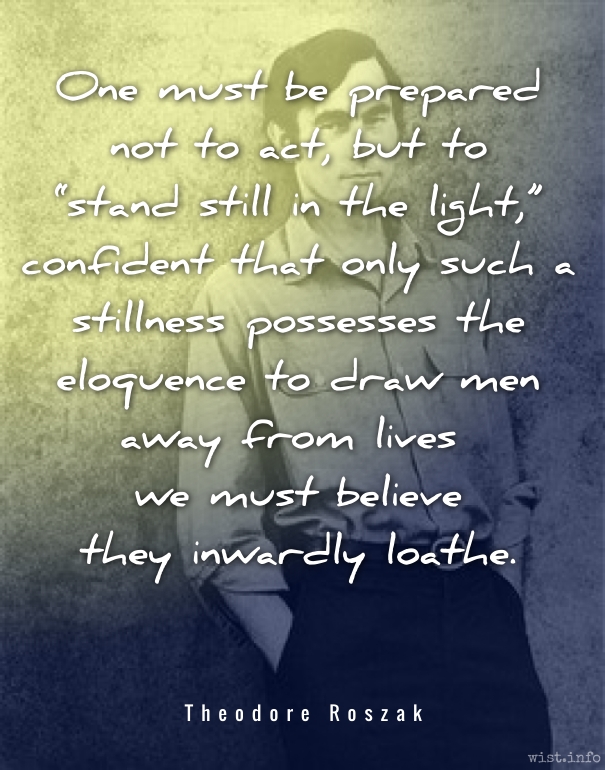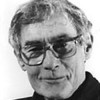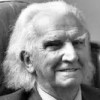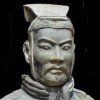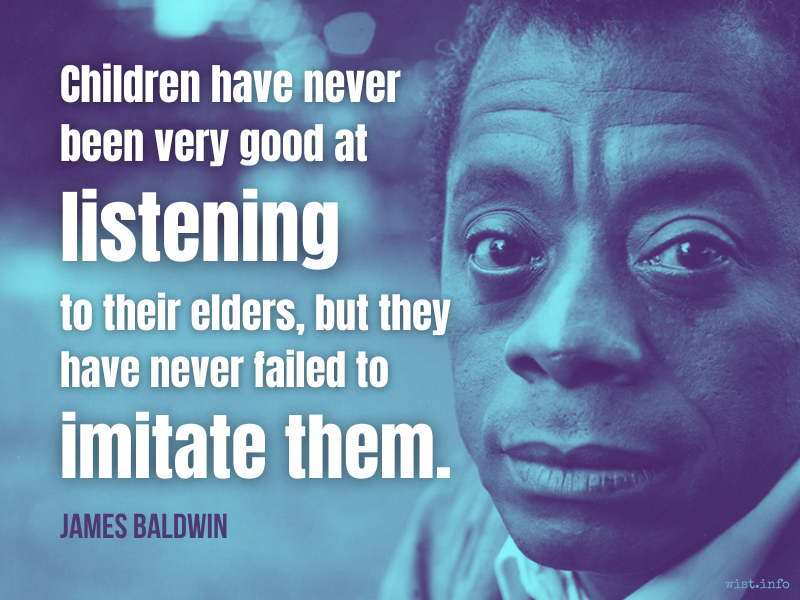Models of manly beauty are rare out of novels, and seldom interesting in them.
F. Anstey (1856-1934) English novelist and journalist (pseud. of Thomas Anstey Guthrie)
The Brass Bottle, ch. 1 “Horace Ventimore Receives a Commission” (1900)
(Source)
Quotations about:
model
Note not all quotations have been tagged, so Search may find additional quotes on this topic.
I do not think military readiness, in itself, will defeat Communism. I do not think we can consider the job finished with that. I think it buys us time to do the bigger job. We must demonstrate that it is possible to overcome poverty, misery and decay by democratic means, and that we must ourselves believe, and must show others, that our American tradition of the dignity and liberty of the individual is not a luxury for easy times but is the basic source of strength and security of a successful society.
Jane Jacobs (1916-2006) American-Canadian journalist, author, urban theorist, activist
“No Virtue in Meek Conformity” (1952)
(Source)
Foreword to her response to a State Department Loyalty Security Board interrogatory (1952-03-25). Reprinted in Vital Little Plans (2016).
The last few days I have read various addresses made on Lincoln’s Birthday. Every Politician always talks about him, but none of them ever imitate him.
All things are tolerable which others have borne and are bearing.
[Sed significat tolerabilia esse, quae et tulerint et ferant ceteri.]
Marcus Tullius Cicero (106-43 BC) Roman orator, statesman, philosopher
Tusculan Disputations [Tusculanae Disputationes], Book 3, ch. 23 (3.23) / sec. 57 (45 BC) [tr. Yonge (1853)]
(Source)
(Source (Latin)). Alternate translations:
- "Those things are in themselves tolerable, which others have born, and do bear." [tr. Wase (1643)]
- "All things are tolerable which others have borne and can bear." [tr. Main (1824)]
- "What others have endured and endure must be tolerable." [tr. Otis (1839)]
- "Things are tolerable which others have borne and are bearing." [tr. Peabody (1886)]
- "The circumstances at hand are indeed tolerable, since others have tolerated them and continue to do so." [tr. Graver (2002)]
Each party abuses the other; the profane and the infidel believe both sides, and enjoy the fray; the reputation of religion in general suffers, and its enemies are ready to say, not what was said in the primitive times, Behold how these Christians love one another, — but, Mark how these Christians HATE one another! Indeed, when religious people quarrel about religion, or hungry people about their victuals, it looks as if they had not much of either among them.
Benjamin Franklin (1706-1790) American statesman, scientist, philosopher, aphorist
Letter to Jane Mecom (23 Feb 1769)
(Source)
On the vociferous denominational debate in America over whether a new bishop should be sent from the Church of England to the Colonies.
ANGEL: Nothing in the world is the way it ought to be. It’s harsh, and cruel. But that’s why there’s us, champions. Doesn’t matter where we come from, what we’ve done or suffered, or even if we make a difference. We live as though the world is as it should be, to show it what it can be.
The essence of success is that it is never necessary to think of a new idea oneself. It is far better to wait until somebody else does it, and then to copy him in every detail, except his mistakes.
Aubrey Menen (1912-1989) British writer, novelist, satirist, theatre critic
The Abode of Love, Part 3, “The Random Wooings” (1956)
(Source)
Be careful how you live your life, it is the only Gospel many people will ever read.
Hélder Câmara (1909-1999) Brazilian Catholic Archbishop, social and political activist
(Attributed)
Quoted in 1985 in Basta, the national news letter of the Chicago Religious Task Force on Central America.
Alt. trans.: "Watch how you live. Your lives may be the only gospel your brothers and sisters will ever read."
Nature is more subtle, more deeply intertwined and more strangely integrated than any of our pictures of her — than any of our errors. It is not merely that our pictures are not full enough; each of our pictures in the end turns out to be so basically mistaken that the marvel is that it worked at all.
Children will imitate their fathers in their vices, seldom in their repentance.
Charles Spurgeon (1834-1892) British Baptist preacher, author [Charles Haddon (C.H.) Spurgeon]
Spurgeon’s Sermons, 3rd Series, Sermon 21, “Manasseh” (1883)
(Source)
No man or woman of the humblest sort can really be strong, gentle, pure, and good, without the world being the better for it, without somebody being helped and comforted by the very existence of that goodness.
Habits to be avoided, or corrected — the ones you are always criticizing in other people. You see, there’s profit to be derived everywhere; when you see or hear about some good example, you can imitate it, when you notice some habit that deserves censure, you can avoid it — or, if you’ve already got into it yourself, be at pains to correct it as soon as possible. Meanwhile, if you’ve a good eye for other people’s faults, don’t forget that they’re watching you.
[Illa etiam magis studeas cavere et vincere quæ tibi in aliis frequentius displicent. Ubique profectum tuum capies ut si bona exempla videas vel audias, de imitandis accendaris. Si quid autem reprehensibile confideraveris, cave ne idem facias, aut si aliquando fecisti, citius emendare te studeas. Sicut oculus tuus alios confiderat, sic iterum ab aliis notaris.]
Thomas à Kempis (c. 1380-1471) German-Dutch priest, author
The Imitation of Christ [De Imitatione Christi], Book 1, ch. 25, v. 4-5 (1.25.4-5) (c. 1418-27) [tr. Knox-Oakley (1959)]
(Source)
See also Matthew 7:3-5.
(Source (Latin)). Alternate translations:
Study also to overcome in thyself those things that most mislike thee in other men, and take always some special profit in everyplace wheresoever thou come; as, if thou see any good example, enforce thee to follow it; and if thou see any evil example, look thou eschew it. As thy eye considereth the works of others, right so and in the same wise be thy works considered by others.
[tr. Whitford/Raynal (1530/1871)]
Study also to overcome in yourself those things that displease you most in others, and always gather some special profit from any place at all. For instance, if you see any good example, make yourself follow it, and if you see any evil example, see that you avoid it. As your eye considers the works of others, so and in the same manner your works are considered by others.
[tr. Whitford/Gardiner (1530/1955)]
Be carefull also to avoid with greater diligence those things in thy selfe which doe most displease thee in others. Gather some profit to thy soul out of every occasion whosoever thou be, so that if thou seest or hearest any good examples, be kindled and provoked to doe the like. But if thou perceive any thing worthy of reproofe, take heed of doing the same, or if thou have done it, labour quickly to amend it. As thou eyest other men so are other mens eies upon thee.
[tr. Page (1639), 1.25.16-19]
And, as this Knowledge of our Own Frailties and Necessities, it is greatly instrumental to our own Improvement, so we shall do well to profit by what we see in Others: and to be particularly concern'd for avoiding and subduing those Habits, which we find most usual and offensive in them with whom we Converse. For the Commonness of any Ill thing is so far from extenuating the Blame of those who copy after it, that it is the direct contrary; and such Examples should be lookt upon, as Marks which discover to us where the Rocks and Sands lie; such as are set to warn us off not to invite us in. Indeed a wise and good Man will turn Examples of all sorts, to his own Advantage. The Good he will make his Patterns, and strive to equal or excel them. The Bad he will by all means avoid; or if by Reflection the Deformity of his Neighbour's Actions happen to represent that of his own, he will be sure to do so no more; and think it a happy occasion, that he is thus grown Wiser by the Folly of others.
[tr. Stanhope (1696; 1706 ed.)]
Be particularly careful also to avoid chiefly those tempers and actions, that chiefly and most frequently displease thee in others. Wherever thou art, turn every thing to an occasion of improvement: if thou beholdeth or heareth of good examples, let them kindle in thee an ardent desire of imitation; if thou seest any thing blameable, beware of doing it thyself; or if thou hast done it, endeavor to amend it the sooner. As thy eye observeth, and thy judgment censureth others, so art thou observed and censured by them.
[tr. Payne (1803), 1.25.5]
Be careful also to avoid with great diligence those things in thyself, which do commonly displease thee in others. Gather some profit to thy soul wheresoever thou be; so as if thou seest or hearest of any good examples, stir up thyself to the imitation thereof. But if thou seest any thing worthy of reproof, beware thou do not the same. And if at any time thou hast done it, labour quickly to amend it. As thine eye observeth others, so art thou also noted again by others.
[ed. Parker (1841)]
Be careful also to avoid those things which more frequently displease thee on others. Wherever thou art, turn every thing to good account: if thou beholdest, or hearest of good examples, let them kindle in thee a desire of imitation; if thou observest any thing blameable , beware of doing it thyself; or, if thou hast occasionally done it, endeavour to amend it the sooner. As thy eye observeth others, so art thou observed by others in turn, and censured by them.
[tr. Dibdin (1851)]
Endeavour with greater zeal to guard against and conquer those vices which most frequently annoy thee in others. Turn all occasions to thy spiritual profit: so that if thou seest or hearest any good examples, thou mayest be spurred on to imitate them. But if thou observe anything that is blameworthy, take heed thou commit not the same; or if thou at any time hast done it, labour to correct thyself as soon as possible. As thine eye observeth others, so art thou in turn observed by others.
[ed. Bagster (1860)]
And strive also very earnestly to guard against and subdue those faults which displease thee most frequently in others. Gather some profit to thy soul wherever thou art, and wherever thou seest or hearest good examples, stir thyself to follow them, but where thou seest anything which is blameworthy, take heed that thou do not the same; or if at any time thou hast done it, strive quickly to amend thyself. As thine eye observeth others, so again are the eyes of others upon thee.
[tr. Benham (1874)]
Be careful also diligently to avoid those things in thyself, which do commonly displease thee in others. Gather some profit to thy soul wheresoever thou art; so that if thou seest any good examples, stir up thyself to the imitation thereof. But if thou observe anything worthy of reproof; beware thou do not the same. And if at any time thou hast done it, labour quickly to amend thyself. As thine eye observeth others, so art thou also noted again by others.
[tr. Anon. (1901)]
Also try more to avoid and overcome those things which most frequently displease you in others. Make your headway in every direction, so that, if you see or hear of good examples, you are fired to imitate them. But if you consider anything blameworthy, take care that you do not the same; or if at any time you have done so, quickly try to correct yourself. As your eye observes others, so you too are noted by them.
[tr. Daplyn (1952)]
Especially study to avoid and overcome those things that most displease you in other people. Strive to progress in all things, and let any examples you see or hear inspire you to imitate them. But if you observe anything blameworthy, take care not to do the same yourself. And should you ever have done so, amend your conduct without delay. As you observe others, so do others observe you.
[tr. Sherley-Price (1952)]
You must also take care to be on your guard and to overcome those things especially which displease you most often in others. You may find opportunities for progress everywhere -- if you see or hear of good examples, you should be inspired to follow them; if you observe anything that can be blamed, take care that you do not do the same. If you have ever done it, you must quickly mend your ways. As your own eye observes other people, you are in turn observed by them.
[tr. Knott (1962)]
Strive also to escape and overcome whatever you find offensive in others. May you grasp at every opportunity for progress. Where you see or hear good example may you be stirred to follow it. When you notice any deed worthy of condemnation, take care that you do not do likewise; and if you do so sometimes, try to correct yourself as quickly as possible. Just as you see others so also you are seen by them.
[tr. Rooney (1979)]
What the world wants iz good examples, not so mutch advice; advice may be wrong, but examples prove themselves.
[What the world wants is good examples, not so much advice; advice may be wrong, but examples prove themselves.]
Josh Billings (1818-1885) American humorist, aphorist [pseud. of Henry Wheeler Shaw]
Everybody’s Friend, Or; Josh Billing’s Encyclopedia and Proverbial Philosophy of Wit and Humor, ch. 130 “Affurisms: Puddin & Milk” (1874)
(Source)
The best foreign policy is to live our daily lives in honesty, decency, and integrity; at home, making our own land a more fitting habitation for free men; and abroad, joining with those of like mind and heart, to make of the world a place where all men can dwell in peace.
Dwight David Eisenhower (1890-1969) American general, US President (1953-61)
Inaugural Gabriel Silver lecture, Columbia University (23 Mar 1950)
One must be prepared not to act, but to “stand still in the light,” confident that only such a stillness possesses the eloquence to draw men away from lives we must believe they inwardly loathe.
It seems to me that America’s objective today should be to try to make herself the best possible mirror of democracy that she can. The people of the world can see what happens here. They watch us to see what we are going to do and how well we can do it. We are giving them the only possible picture of democracy that we can: the picture as it works in actual practice. This is the only way other peoples can see for themselves how it works; and can determine for themselves whether this thing is good in itself, whether it is better than they have, better than what other political and economic systems offer them.
Eleanor Roosevelt (1884-1962) First Lady of the US (1933-45), politician, diplomat, activist
The Autobiography of Eleanor Roosevelt, ch. 43 “Milestones” (1961)
(Source)
I used to be very revolutionary, but now I think that nothing can be gained by brute force. People must be drawn to good by goodness.
Boris Pasternak (1890-1960) Russian poet, novelist, and literary translator
Doctor Zhivago [До́ктор Жива́го], Part 2, ch. 8 “Arrival,” sec. 5 [Yury] (1955) [tr. Hayward & Harari (1958), US ed.]
(Source)
Alternate translations:
I used to be very revolutionary-minded, but now I think that nothing can be gained by violence. People must be drawn to good by goodness.
[tr. Hayward & Harari (1958), UK ed.]
I used to be in a very revolutionary mood, but now I think that we'll gain nothing by violence. People must be drawn to the good by the good.
[tr. Pevear & Volokhonsky (2010)]
The World is a very complex system. It is easy to have too simple a view of it, and it is easy to do harm and to make things worse under the impulse to do good and make things better.
Example has more followers than reason. We unconsciously imitate what pleases us, and insensibly approximate to the characters we most admire. In this way, a generous habit of thought and of action carries with it an incalculable influence.
Christian Nestell Bovee (1820-1904) American epigrammatist, writer, publisher
Intuitions and Summaries of Thought, Vol. 1, “Example” (1862)
(Source)
We are, in truth, more than half what we are by imitation. The great point is, to choose good models and to study them with care.
Lord Chesterfield (1694-1773) English statesman, wit [Philip Dormer Stanhope]
Letter to his son, #214 (18 Jan 1750)
(Source)
Imitate what is good wheresoever thou findest it, though among Turks, Jews, Pagans, or even Papists. And abominate Evil, though in thy nearest Relation.
Thomas Fuller (1654-1734) English physician, preacher, aphorist, writer
Introductio ad Prudentiam, # 780 (1725)
(Source)
It will, I believe, be everywhere found, that as the clergy are, or are not what they ought to be, so are the rest of the nation.
Be noble! And the nobleness that lies
In other men, sleeping, but never dead,
Will rise in majesty to meet thine own.James Russell Lowell (1819-1891) American diplomat, essayist, poet
“Sonnet 4” (1840)
(Source)
Often presented as a simple sentence, rather than lines within a larger poem.
Children have never been very good at listening to their elders, but they have never failed to imitate them.
When you see someone who is worthy, concentrate upon becoming their equal; when you see someone who is unworthy, use this as an opportunity to look within yourself.
[見賢思齊焉、見不賢而內自省也。]
Confucius (c. 551- c. 479 BC) Chinese philosopher, sage, politician [孔夫子 (Kǒng Fūzǐ, K'ung Fu-tzu, K'ung Fu Tse), 孔子 (Kǒngzǐ, Chungni), 孔丘 (Kǒng Qiū, K'ung Ch'iu)]
The Analects [論語, 论语, Lúnyǔ], Book 4, verse 17 (4.17) (6th C. BC – AD 3rd C.) [tr. Slingerland (2003)]
(Source)
(Source (Chinese)). Alternate translations:
When we see men of worth, we should think of equaling them; when we see men of a contrary character, we should turn inwards and examine ourselves.
[tr. Legge (1861)]
When you meet with men of worth, think how you may attain to their level; when you see others of an opposite character, examine yourself.
[tr. Jennings (1895)]
When we meet with men of worth, we should think how we may equal them. When we meet with worthless men, we should turn into ourselves and find out if we do not resemble them.
[tr. Ku Hung-Ming (1898)]
When you see a man of worth, think how to rise to his level. When you see an unworthy man, then look within and examine yourself.
[tr. Soothill (1910)]
See solid talent and think of measuring up to it; see the un-solid and examine your own insides.
[tr. Pound (1933)]
In the presence of a good man, think all the time how you may learn to equal him. In the presence of a bad man, turn your gaze within!
[tr. Waley (1938)]
When you see a man of the highest caliber, give thought to attaining his stature. When you see one who is not, go home and conduct a self-examination.
[tr. Ware (1950)]
When you meet someone better than yourself, turn your thoughts to becoming his equal. When you meet someone not as good as you are, look within and examine your own self.
[tr. Lau (1979)]
When you come across a superior person, think of being equal to him. When you come across an inferior person, turn inwards and examine yourself.
[tr. Dawson (1993)]
When you see a worthy man, seek to emulate him. When you see an unworthy man, examine yourself.
[tr. Leys (1997)]
On seeing a worthy man, think of equalling him; on seeing an unworthy man, examine yourself inwardly.
[tr. Huang (1997)]
One should think to follow the sagaciousness when one sees it; One should examine onceself when one sees the no sagaciousness.
[tr. Cai/Yu (1998), #83]
When you meet persons of exceptional character think to stand shoulder to shoulder with them; meeting persons of little character, look inward and examine yourself.
[tr. Ames/Rosemont (1998)]
When he sees a worthy man, let him think how he might come up to him; when he sees an unworthy man, let him examine within himself.
[tr. Brooks/Brooks (1998)]
In the presence of sages, you can see how to perfect your thoughts. In the presence of folls, you must awaken yourself.
[tr. Hinton (1998)]
When you see a worthy person, think about how you can equal him. When you see an unworthy person, reflect on your own conduct.
[tr. Watson (2007)]
When you meet a worthy person, think how you could become his equal. When you meet an unworthy person, turn inward and examine your own conduct.
[tr. Chin (2014)]
When you meet a virtuous person, you should strive to emulate his virtues. When you meet a person void of virtue, you should consider whether you have the same flaws.
[tr. Li (2020)]
Essentially, all models are wrong, but some are useful.
George E. P. Box (1919-2013) Anglo-American statistician, quality scientist [George Edward Pelham Box]
Empirical Model Building and Response Surfaces (1987) [with N. R. Draper]
As written on p. 424; earlier in the book (p. 74), it is given as: "Remember that all models are wrong; the practical question is how wrong do they have to be to not be useful."

